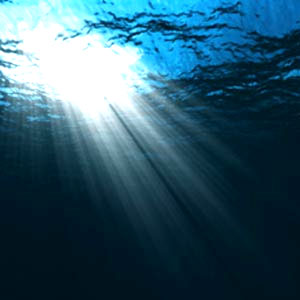
Looking to treat your water but leery of using chlorine?
Say no more, fam.
Two weeks ago, we sent a couple of our salt sales experts to a workshop to learn about some of the hot technologies making a splash in the water softener industry.
This workshop focused mainly on UV Filtration–a filtration method that uses ultraviolet rays to kill virtually all living organisms in your water.
Which brings me to Water Word Wednesday, or rather, “Thirsty Thought Thursday”
(this week’s substitution–think of it as Wednesday’s awkward cousin)
Most cities use chlorine to treat their water, and there’s got to be a reason for that, right? Surely, UV treatment must have some bad side effects or drawbacks that make chlorine the more common choice.
Wrong! UV filtration is legit.
Four things you should know about UV filtration:
4. It’s been around forever

Like waist trainers (corsets) and herbal tea diets, this “emerging trend” has actually been around the block a few times
We’ve known about the germ-killing properties of UV rays for centuries.
Back in the day, people used direct sunlight to sanitize their water. Eventually the technique for this concept developed, and scientists learned to channel UV-C ray power for more efficient sanitizing. Today, UV filtration is an arguably more effective cleanser than the popular chlorine, but it has fewer negative side effects.
3. It’s not just for treating water

This fun fact is my personal favorite: there are hospitals that use UV disinfection methods.
Hospitals.
Hospitals — a.k.a. institutions full of people who are vulnerable to illnesses — have enough faith in the legitimacy of this method to use it on equipment. UV advocates say it’s great because it prevents contamination in addition to zapping viruses, pathogens and protozoa.
Even more interesting, this technique is used by shoe companies, too. Products like SteriShoe use UV rays to allegedly deodorize and kill the bacteria hiding in your running shoes.
2. It’s low-maintenance
If the UV filter were nominated for any high school yearbook superlative these days, it would definitely be voted “most chill.”
UV filtration is not as needy as its high-maintenance competitor, chlorine. It works most effectively on soft water, so you may need to get a water softener if you don’t have one already.
Aside from that, you will need to replace the lamp once a year and occasionally clean/replace the quartz sleeve for its maintenance.
FYI: The price difference between cleaning the quartz sleeve and replacing it is fairly comparable, but replacing is recommended (and less work!)
1. It’s very well-liked
Groundwater wells–especially older ones–are at a high risk of becoming contaminated, and must be treated in some way to avoid waterborne illnesses.
Of the various water treatments well-owners can choose from, chlorine and UV treatments are the only ones guaranteed to disinfect the water.
Most city water is chlorine-treated because it has to go through miles of piping between the treatment plant and the destination. Groundwater wells, on the other hand, don’t have far to travel; water goes straight to the home without all the piping, making UV filtration a realistic and economical option.
One big difference between the two is that chlorine is a corrosive, noxious chemical. Proper use of it requires ongoing monitoring and professional installation. Chlorine can also change the taste and smell of your water, and it can produce harmful by-products.
Interested in UV filter installation? Call our office for details at 952-929-0422
If you live near the western Twin Cities suburbs, we’d be happy to get you all hooked up!


